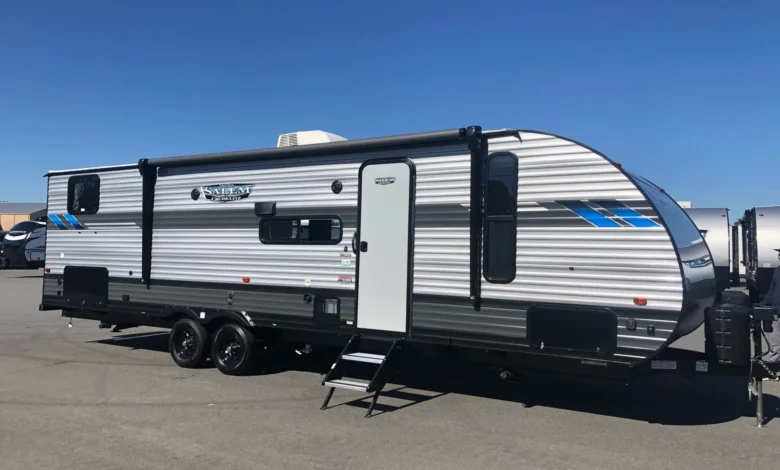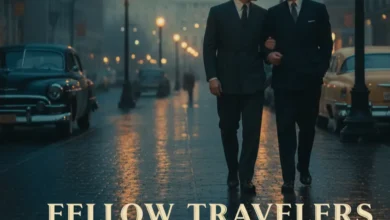Bunkhouse Travel Trailer: Comfort Space, and Road Trip Freedom

Traveling with family or friends can be one of life’s greatest joys, but it also comes with one big challenge space. Hotels can be expensive, tents often feel cramped, and standard RVs don’t always offer enough beds for everyone. That’s where the bunkhouse travel trailer steps in. Designed with comfort, efficiency, and togetherness in mind, it gives you the freedom to hit the road without sacrificing the feeling of home. In this guide, we’ll break down exactly what a bunkhouse travel trailer is, how it works, and why it has become such a popular choice for modern travelers looking to balance adventure with convenience.
Table of contents
- What is a bunkhouse travel trailer?
- How does bunkhouse travel trailer work for different travelers?
- Why is bunkhouse travel trailer important today?
- What sizes and layouts are available?
- How does it compare to a regular travel trailer?
- What features should buyers look for?
- How much does a bunkhouse travel trailer cost?
- Is a bunkhouse travel trailer good for full-time living?
- What are the pros and cons?
- How do you maintain bunkhouse travel trailer?
- Conclusion
- FAQs
What is a bunkhouse travel trailer?
A bunkhouse travel trailer is a recreational vehicle designed with built-in bunk beds, giving families and groups more sleeping capacity without compromising comfort. Unlike standard travel trailers that usually have just one or two sleeping areas, the bunkhouse layout devotes part of the space to bunks, often in a private room or tucked neatly into a section of the trailer. This setup transforms a simple camper into a practical solution for larger groups. For families with kids, grandparents traveling with grandkids, or couples who frequently host guests, it feels less like a compromise and more like a small home on wheels.
How does bunkhouse travel trailer work for different travelers?
The way it functions is straightforward: you hitch it to your tow vehicle and take off. What sets the bunkhouse design apart is its ability to keep everyone comfortable on the road. Parents enjoy their own bed without sacrificing space for their children. Kids get their own cozy sleeping quarters that often double as play or reading nooks. In some designs, bunks even have curtains, partitions, or separate entertainment systems, allowing children or guests a space of their own. For adults traveling with friends, the extra beds mean you can bring more people along without constantly rearranging the living area.
Why is bunkhouse travel trailer important today?
Modern travel is about flexibility, cost savings, and comfort, and that’s where bunkhouse trailers shine. With hotel prices on the rise, a bunkhouse model lets families bring their own bedroom and kitchen anywhere they go. This type of trailer also creates a sense of familiarity, since you travel with your own bedding, cookware, and bathroom setup. More importantly, it opens the door to adventure. National parks, lakesides, and campgrounds become easier to explore when you’re not tied to hotel availability. For many people, it’s not just a practical purchase but an investment in a lifestyle of freedom and repeated family adventures.
What sizes and layouts are available?
Bunkhouse travel trailers come in many sizes, from compact models around 20 feet to spacious versions stretching beyond 35 feet. Layouts vary as well. Some place the bunkhouse at the rear, separated by a door or curtain for privacy. Others build the bunkhouse in the middle of the trailer, freeing up the back for a large living area. A few designs even feature loft-style bunks positioned above storage or seating areas. Depending on the brand and model, sleeping capacity ranges from four to as many as ten people, making them versatile for groups of different sizes.
How does it compare to a regular travel trailer?
The biggest difference is intent. A standard travel trailer works well for couples or solo travelers who don’t need multiple beds. A bunkhouse trailer, by contrast, is built to maximize group living. This means that while you may give up some open living space in exchange for bunk beds, you gain flexibility for family or guests. For most buyers with children or large travel groups, that trade-off is well worth it.
What features should buyers look for?
When shopping for a bunkhouse travel trailer, it’s important to focus on features that suit your lifestyle. Sleeping capacity is the first consideration—does it comfortably fit everyone you expect to bring along? Slide-outs can dramatically increase interior room when parked. Bathroom placement is another key detail, and some models even allow direct bunkhouse access to a bathroom. Storage space, especially under bunks or in exterior compartments, makes organization easier. The trailer’s weight is critical, since your tow vehicle must be capable of pulling it safely. Beyond the essentials, many buyers also look for upgraded amenities such as modern kitchens, entertainment systems, or even outdoor cooking setups.
How much does a bunkhouse travel trailer cost?
Prices vary widely, but most fall between $20,000 and $60,000 depending on size, brand, and features. Entry-level trailers are more budget-friendly, while high-end models with slide-outs, premium appliances, and luxury finishes climb toward the upper end. It’s also worth remembering that the purchase price is just the beginning. You’ll need to plan for insurance, fuel, campground fees, and regular maintenance.
Is a bunkhouse travel trailer good for full-time living?
For some families, yes. Many people who homeschool or work remotely use a bunkhouse trailer for full-time living. The extra sleeping quarters make long-term stays more manageable, especially when children need their own space. That said, not every model is equally suited for daily use. If full-time living is your goal, it’s worth choosing a high-quality trailer with solid insulation, durable finishes, and reliable appliances. These upgrades ensure comfort and longevity when the trailer isn’t just for vacations but for everyday life.
What are the pros and cons?
Like any RV purchase, a bunkhouse trailer has both strengths and trade-offs. The biggest advantage is the family-friendly design that gives children or guests a dedicated sleeping area, something hotels often can’t match. The layouts are flexible, letting you adapt to different travel needs, and the overall cost savings compared to frequent hotel stays can be significant. On the other hand, bunkhouse models tend to be heavier and may require a more powerful tow vehicle. They also sacrifice some open floor space compared to non-bunk trailers. For many buyers, though, the pros outweigh the cons.
How do you maintain bunkhouse travel trailer?
Maintenance is part of ownership, and staying consistent saves money in the long run. Checking the seals and roof for leaks helps prevent water damage. Flushing and sanitizing water systems keeps plumbing fresh and safe. Tires should be inspected before every trip, and the bunk areas—often used by kids—benefit from regular cleaning. Seasonal maintenance, such as winterizing before freezing weather, protects the trailer from costly repairs. With proper care, a bunkhouse travel trailer can last many years of adventure.
Conclusion
If you’ve ever imagined road trips where everyone has their own bed, where kids can retreat to their own corner, and where family or friends can join without crowding the living area, then a bunkhouse travel trailer could be the answer. It provides not just practicality but a lifestyle shift. With it, you gain freedom, comfort, and the joy of building lasting memories on the road. The real decision is less about whether you need one and more about when you’re ready to start traveling this way.
FAQs
Q1: How many people can a bunkhouse travel trailer sleep?
Most bunkhouse trailers can sleep six to ten people, though the exact number depends on the floor plan.
Q2: Do bunkhouse trailers come with bathrooms?
Yes, almost all include at least one bathroom, and some have a half-bath dedicated to the bunkhouse area.
Q3: Can I tow a bunkhouse travel trailer with my SUV?
It depends on the SUV’s towing capacity. Smaller models may work, but larger trailers generally require a truck.
Q4: Are bunkhouse travel trailers good for long road trips?
They are excellent for extended journeys because the extra sleeping space makes group travel comfortable and stress-free.





